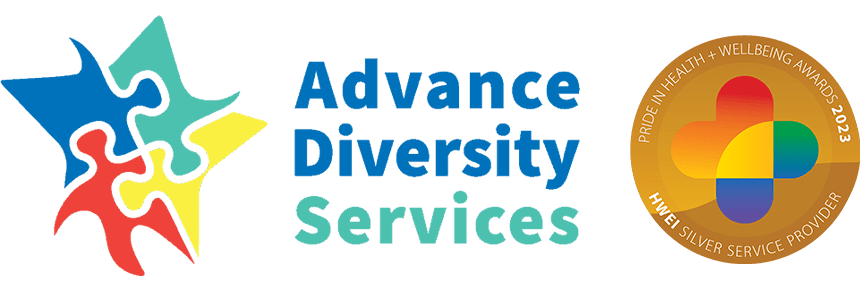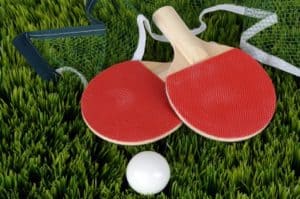Sporting activities combined with health-related information sessions can improve the health, wellbeing and social connectivity of culturally and linguistically diverse (CALD) young people including those who are newly arrived.
This finding is detailed in two recently released reports from the Get Active Project funded by Multicultural Health, South Eastern Sydney Local Health District (SESLHD) and rolled out by Advance Diversity Services.
‘Research results from ADS’s Get Active Project offer valuable insights into the health and wellbeing needs of CALD and newly arrived young people in our region’ said Anthony Scerri, Program Manager of Settlement and Community Services and Youth Services Team Leader with Advance Diversity Services.
Mr Scerri presented Get Active findings at the Youth Health: Promoting Empowerment, Wellbeing and Safety Research to Practice Forum in Surry Hills, Sydney, on April 10.
The forum was organised by the Priority Populations Unit – SESLHD to showcase the latest research on the experience of young people accessing health services, and to highlight best-practice programs across the region for engaging vulnerable and at-risk young people.
‘I was invited to speak at the forum because Get Active is seen as a good example of a successful locally based project,’ Mr Scerri said. ‘Our aim was to improve the health, wellbeing and social participation of CALD and newly arrived young people through sports and information sessions – and Get Active achieved this.
‘Our results will also help local youth and health services providers in the St George region to target their services to ensure young people receive the support and information they need to foster their health and wellbeing.’
Get Active roll out
ADS received funding from the South Eastern Sydney Local Health District (SESLHD) Multicultural Health Grants Program: Healthy Communities Project to coordinate the project.
This included organising a series of table tennis clinics combined with health-related information sessions at Kogarah Intensive English Centre (KIEC) and the ADS Youth Club. It also incorporated a regional table tennis tournament held at Hurstville Aquatic Centre in partnership with St George and Sutherland Shire Table Tennis Association and Table Tennis NSW.
Throughout these activities ADS and other project partners gathered young people’s perspectives on a range of health-related issues, including the features they’d most like to see in the health services targeted to support them. Their feedback is documented in the Get Active project reports along with details of audits conducted by Health Promotion SESLHD (a project partner) to promote healthy environments for young people at the ADS offices in Rockdale (where the ADS Youth Club meets regularly) and the Kogarah High School Canteen. Since the Get Active Project ended, ADS has also funded weekly sport sessions at Beverly Hills Intensive English Centre, and KIEC has approached ADS to offer table tennis sessions.
The success of Get Active’s Youth Health Forum held in June 2017 led to a recommendation that similar forums be held in the St George region every two years. ADS Youth Worker, Salvin Kumar, will meet with service providers soon to prepare for a second youth health forum in 2019.
In his day-to-day work, Mr Kumar provides information about racism, bullying, exams and other issues of concern identified by young people involved in the project, and asks relevant services to provide sessions for youth on these issues. The Get Active reports also recommend that local services provide targeted information to CALD and newly arrived young people on these topics.
‘We’re pleased that after taking part in the Get Active health and exercise sessions the majority of Get Active participants felt their knowledge about healthy food, healthy relationships, being active, accessing GPs and using interpreters had increased’ said Mr Scerri.‘Their confidence in pursuing sporting activities had also improved.
‘These outcomes support evidence from the Centre for Multicultural Youth (CMY) and Australian Institute of Health and Welfare (AIWH) in relation to the overall health and social benefits of recreational and educational projects,’ he said.
‘ADS will continue to build on these findings – to create programs that meet young people’s needs and can give them timely, accessible and relevant support.’
Read the reports now …
Project Report – Get Active CALD Youth Project 2015-2017: https://tinyurl.com/yc5lqw6t | Youth Health & Wellbeing Consultations – July 2017: https://tinyurl.com/yasuwch2
Get Active participant backgrounds
Young people involved in the project came from diverse family and cultural backgrounds including: Thai, Russian, Chinese (not specified), Mandarin, Vietnamese, Nepali, Malay, Greek, Hindi/Punjabi, Arabic, English, Bangladesh, Burmese, Cypriot, Egyptian, Indonesian, Iranian, Iraqi, Mongolian, Pakistani, Palestinian, Peruvian, Filipino, Syrian and Yemeni.
Get Active project partners
Advance Diversity Services including its Youth Club, Beverly Hills Intensive English Centre, Directorate Planning, Population Health and Equity – SESLHD, headspace Hurstville and Miranda, Kogarah Intensive English Centre, Multicultural Health Service – SESLHD Primary Integrated and Community Health – SESLHD, St George and Sutherland Shire Table Tennis Association, and St George Youth Services.

